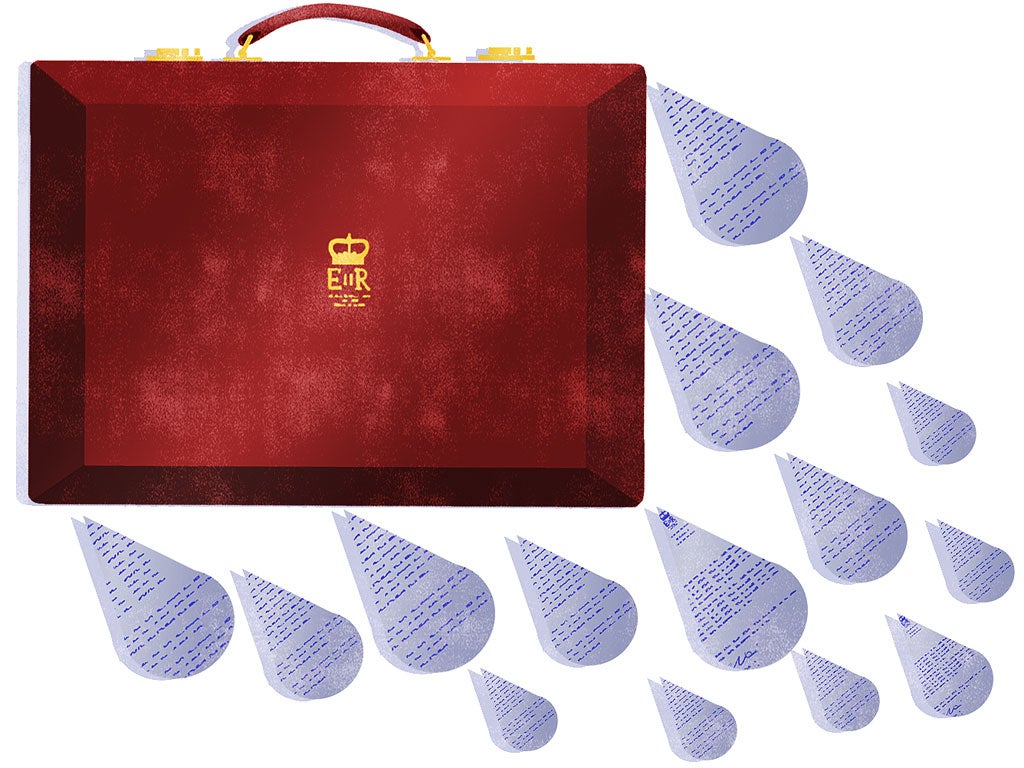Mary Ann Sieghart: The more leaks, the better the discussion
Tax proposals should be scrutinised, tested and challenged before they are put into law, not after


This week's Budget should have been a dull affair. We're half-way through a Parliament and there is no money to give away. But so far it's been one of the most political I can remember, and it hasn't even been delivered yet. Welcome to coalition government.
The reason the debate at the top of the two parties has been so public is that only one man, George Osborne, can stand up on Wednesday and deliver the Budget statement. And the Liberal Democrats don't want him to take all the credit. Nick Clegg looks enviously to Sweden where, he discovered recently, the coalition partners take turns, over a matter of weeks, to announce budget measures. Here, Clegg can only do it through leaks to, or interviews with, newspapers.
So, 10 days ago, he gave an interview to the Daily Telegraph in which he floated the idea of a "tycoon tax" – effectively a cap on the amount of tax relief wealthy people can claim, so that they pay at least a minimum level of tax on their earnings and capital gains. It was caricatured as a desperate back-of-the-envelope idea that Clegg had dreamed up at the last minute. In fact, Treasury officials have been studying its feasibility, at the request of the Lib Dems, since the start of the year.
I understand that some version of a tycoon tax will be brought in on Wednesday, as an alternative to the Lib Dems' earlier preference, a "mansion tax", which won't happen. The tycoon tax will provide the political cover for the Government to cut the 50p top income tax rate to 45p (not 40p, as suggested last week). This will be accompanied, critically, by calculations showing that the total tax take from the wealthy will actually rise when the two measures are taken together. The Lib Dems need this to reassure their supporters; the Tories need it to neutralise their enemies.
Even though the mansion tax found a few surprise backers in the Tory party recently, it was never going to be conscionable this year. Most of the expensive houses that would be hit are in London, which holds mayoral elections in two months' time. Not only do the Conservatives want to hold on to the capital; David Cameron and George Osborne don't want to give Boris Johnson an excuse, if he loses, to come back into the Commons and make trouble for them there.
The added merit of the tycoon tax is that it is defensible across the political spectrum. After all, it was one of the world's wealthiest men, Warren Buffett, who said it was a scandal that he paid a lower rate of tax than his secretary. And Mitt Romney's recent admission that he had paid just 15 per cent tax on his income for the past two years has raised eyebrows, and not just among Democrats. An expectation that the richest citizens should pay at least the basic rate of tax on all their income doesn't sound punitive – whereas asking for half of every pound they earn over £150,000 does. If the former raises more money than the latter, so much the better.
For most people, though, these arguments are no more than symbolic. What matters for them is that the Government puts more money in their pockets at a time when their disposable incomes are shrinking. The Lib Dems talk of raising the personal allowance as a way of taking more low-paid people out of the tax system altogether. It is, but it also benefits people further up the income scale – the squeezed middle.
It may even help the rich too, depending on what Osborne decides to do on Wednesday. In his first Budget, he changed the threshold for the higher rate so that better-off taxpayers didn't benefit from the raised personal allowance. But in his last Budget, which comes into effect this April, he didn't take those corrective measures. So everyone will get a tax cut. If he does the same this week, it will be a sign that the Tories want this to be seen as more than just a Lib Dem measure.
That is important for them politically. At the moment, the two policies the Lib Dems have been publicly pushing – raising the tax allowance and the tycoon tax – are hugely popular. The two policies the Tories have been pushing – cutting the 50p rate and mitigating the loss of child benefit to higher-rate taxpayers – are correspondingly unpopular. According to a YouGov poll for The Sunday Times yesterday, only 29 per cent of people think the Government should abolish the 50p tax rate, and 59 per cent are in favour of taking away child benefit from high-rate taxpayers.
George Osborne doesn't want to be on the wrong side of the argument. As one of his close associates said to me yesterday, "George is a canny politician. He hasn't suddenly become John Redwood. He's not going to allow the party to be defined as the party of the rich." That's why he talked yesterday about coming down "like a ton of bricks" on wealthy people who avoid paying stamp duty on their house sales.
The Tories take comfort from their private polling, which apparently finds that people don't believe the Lib Dems have any influence on what goes into the Budget. Voters believe it is Osborne who decides it all, and that all this public lobbying in advance makes the Lib Dems look weak.
That may be the case, but it is hard to see what else the Lib Dems can do to prove that they do shape the contents of the Budget – short of calling for a Swedish-style share -out of the announcements, which is never going to happen.
Anyway, it's a debate that the rest of us should relish. It's far better that tax proposals should be scrutinised in public, tested by experts and challenged by opponents before they are put into law than that they be hatched in secret and unleashed on us only when it is too late to improve them. I very much doubt that the 10p tax rate debacle which did so much damage to Gordon Brown would have happened if it had been tested on the public in advance.
Much is made of how the process of government has improved under the Coalition, because ministers from both parties have to negotiate each policy meticulously and formally, with civil servants present. We should also appreciate the informal pre-Budget negotiation that now goes on in public. It may irritate the Chancellor, but it's likely to lead to better policy. If the Lib Dems have cracked open the tight walls of the Treasury, we should all give a small cheer.
Join our commenting forum
Join thought-provoking conversations, follow other Independent readers and see their replies
Comments
Bookmark popover
Removed from bookmarks